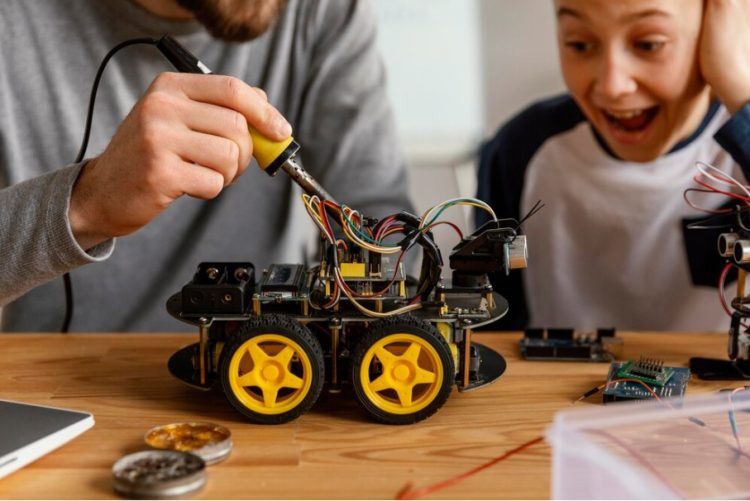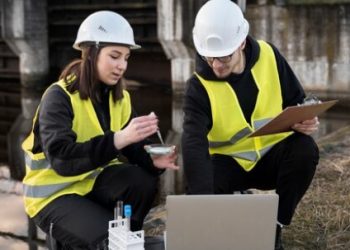We stand at the cusp of a robotic revolution. Robots, from self-driving cars to robotic surgeons, are poised to fundamentally transform our world. But what exactly does the future hold for robotics? And how will these autonomous machines impact society?
In this article, we’ll explore the rapid evolution of robotics, examine the potential benefits and risks, and imagine how robots may shape the world of tomorrow. Read on to learn how robots will change our lives in the years ahead.
The Rise of Robots
Robotics has come a long way in the past few decades. From early industrial robots in manufacturing to today’s cutting-edge machines, robots have grown increasingly complex and capable.
Several key factors are propelling the growth of robotics today:
- Improved technology – Advances in AI, computer vision, mobility, and cloud robotics make robots more innovative, agile, and easier to deploy.
- Increased investment – Venture capital funding for robotics startups reached $18 billion in 2021, underscoring the growth potential.
- Pandemic acceleration – COVID-19 increased demand for robots to handle risky healthcare, retail, and logistics jobs.
- Broader applications – Robots are moving beyond factory floors into new domains like warehouses, homes, hospitals, and restaurants.
Robots are already demonstrating their usefulness across many industries:
- In warehousing, logistics robots can efficiently locate and transport inventory.
- In healthcare, surgical robots can conduct complex, minimally invasive procedures with enhanced precision.
- Collaborative robots work safely alongside humans in manufacturing while taking over hazardous or repetitive tasks.
As capabilities improve, robots will continue disrupting how we work and live.
The Impact of Robots on Society
The rise of robots promises many possible benefits but also raises potential risks and challenges.
On the positive side, robots can:
- Increase productivity – By automating tedious and dangerous work, robots enable human workers to focus on higher-value tasks.
- Improve safety – Robots can take risky jobs like handling toxic materials or exploring hazardous sites.
- Enable innovation – Smart robots can perform experiments, collect data, and conduct research faster than humans.
However, critics argue that robots could also:
- Displace jobs – Automation may result in job losses in specific industries like manufacturing and transportation.
- Raise ethical concerns – Using autonomous robots in policing, the military, and healthcare raises tricky ethical issues.
- Increase inequality – The benefits of automation may accrue more to high-skilled workers and widening societal divides.
Realizing the upside of robotics while mitigating the downsides will require careful management by businesses, policymakers, and society.
The Future of Robotics
The full impact of the robotics revolution will reveal itself in the coming decades. However, we can expect to see robots play growing roles in various domains.
- Healthcare – Robot surgeons will perform operations with superhuman accuracy. Exoskeletons will help rehabilitation and augment human strength.
- Manufacturing – Factories will leverage intelligent robots powered by AI and computer vision to automate processes. Human-robot collaboration will become the norm.
- Transportation – Self-driving trucks will haul freight across the country. Robo-taxis will provide autonomous ridesharing in cities.
- Customer service – Chatbots and service robots will transform retail, tourism, banking, and other industries.
- Homes – Domestic robots will handle household chores, provide companionship to older people, and become part of the family.
The future of robotics is packed with possibilities but also some uncertainty. How exactly will robots integrate into society? How will they impact employment and inequality? What new regulations will govern their use?
By anticipating the coming changes, we can proactively address concerns, shape robotics for social good, and reap the many rewards these machines offer.
The Road Ahead
Robotics will be one of the most transformative technologies of the 21st century. Robots are poised to revolutionize industries, enhance productivity, and fundamentally change how humans live and work.
Realizing the full promise of robotics while mitigating the risks will require ethically-minded practices by engineers, companies, policymakers, and the public. However, building and deploying robots humanely and responsibly could propel society into a future of safety, innovation, and inclusive prosperity.
There’s no turning away from the robotic future. The machines are coming. We can craft that future with wisdom and care into one that benefits all humankind.
One exciting possibility is the potential for robots to take over dangerous and repetitive jobs, allowing human workers to focus their time and energy on more fulfilling, creative tasks. For example, robots could manage hazardous waste, freeing sanitation workers to serve in more engaging community roles. Or, in restaurants, robots could scrub grills and fryers, enabling chefs to devote more care to food preparation and customer service.
However, for this optimistic future to unfold, businesses, governments, and institutions must invest in retraining and job transition programs so that displaced workers can smoothly shift into new roles. Individuals must also embrace lifelong learning and remain open to acquiring new skills as the economy evolves.
Another key to realizing robotics’ potential will be making the technology accessible and affordable to people and organizations of all income levels. If only the wealthy can afford advanced robots, it could further entrench societal divides. Companies have a corporate social responsibility to promote robotics applications that can enhance opportunities for poorer communities, such as agricultural robots that support smallholder farmers. With thoughtful development and deployment, robotics can become an inclusive technology.
The robotic genie is out of the bottle, and there’s no going back. But humans still have agency in shaping how these technologies impact society. By recognizing both the promising potential and actual risks on the road ahead and intentionally directing robotics to benefit humanity, we can write a future story that uplifts us all. The robots are coming – let’s get ready!









